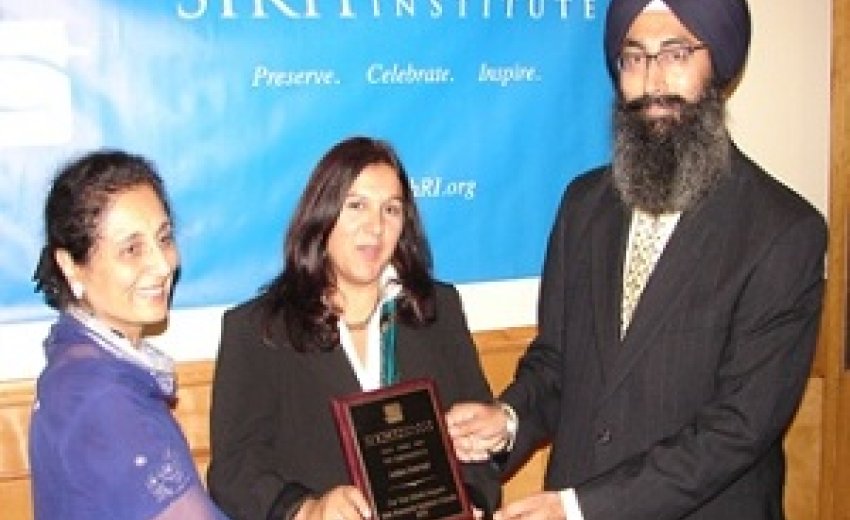Harinder Singh delivered an inspiring Keynote Address at SIKH RESEARCH INSTITUTE’s FIRST FUNDRAISER
LAST Saturday, Sikh Research Institute now recognized as a registered charity in Canada, held their first fundraising luncheon in Richmond to a full house which included MP Sukh Dhaliwal, MLA Raj Chouhan, Burnaby City Councillor Paul McDonell, leaders from various gurdwaras and Sikh youth. Harinder Singh, Chief Programming Officer of SikhRI, presented the keynote address on “Sikhi 2020: Challenges and Responses - from Anandpur Sahib,” which was well received. He spoke on a range of issues with historical comparatives of Sikh history in 1870 to contemporary times and in doing so, identified with cyclical trends from ideological ascendancy struggles, and degradation to prosperity.
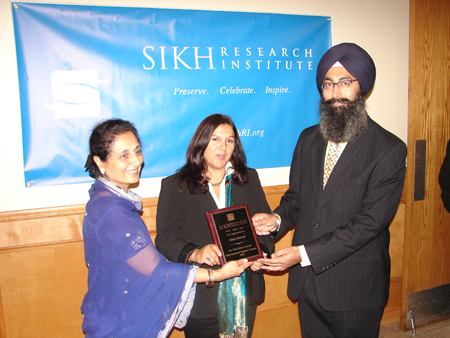
What resonated with many people in attendance was when Harinder Singh posed the question: “Do we have solutions for today’s challenges?” Some of the issues he spoke about were the struggle for identity, integration versus assimilation challenges, lack of Sikh awareness, “consumerist religion,” intra community relations and Nation Building. Some of the Sikh women present appreciated the inclusion of women in Harinder Singh’s presentation when he spoke about the drug issue in Punjab and made reference to the high percentage of girls in prison as a result of being lured into the dark and dangerous underworld of gangs and drugs. He also spoke about the exclusion of women in the public sphere and the importance of making women “part of the decision making policy, as one of many ways to achieve gender equity.
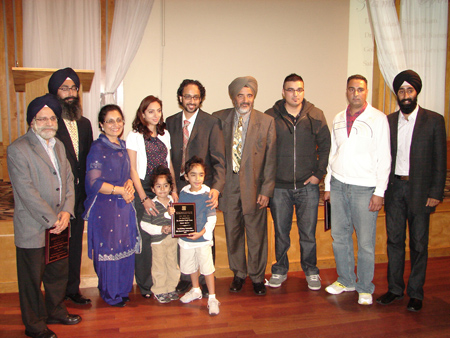 |
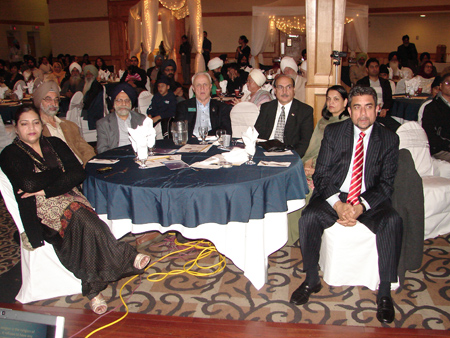 |
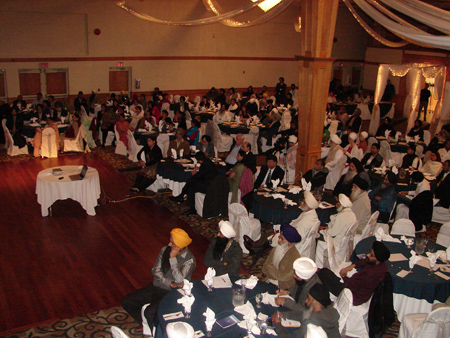 |
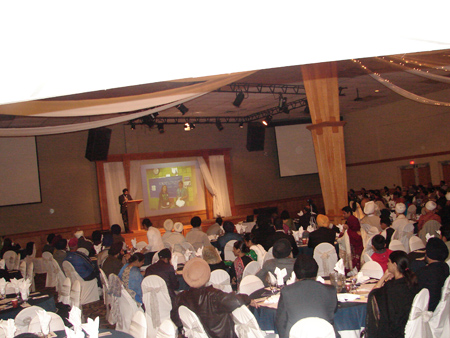 |
| Pics from SIKH RESEARCH INSTITUTE’S FIRST FUNDRAISER | |
The event ended with a beautiful and powerful quote by Professor Puran Singh. This was followed by presentation of plaques and among the recipients was Asian Journal and as Special Columnist for the newspaper, I accepted the plaque from Harinder Singh and Baljinder Kaur Narang (see first photo).
MANY people left the memorable event inspired. They included Raj Chouhan who has supported Harinder Singh’s work. He told me: “Harinder is challenging our assumptions. That is the main thing. The majority of us go to gurdwaras thinking I have done my job and not thinking about what is happening in the society or how to move forward and I thank Harinder for doing it.”
Baljinder Kaur Narang, president of Sikh Research Institute in Canada who hosted the event and who was pleased with the warm reception from the community, told me afterwards: “The clear message I received from the overwhelming response was a strong desire for educational programs that are delivered in a professional way and are relevant to all Sikhs. We hope to continue our work in preserving our rich history, celebrating our unique identity, and inspiring young people to move forward with pride.” With a wealth of information transmitted and shared at the reception, I asked Harinder Singh for his thoughts on Sikh issues today to which he responded: “We first need to think about how to develop consensus, and secondly on the things we want to work together on. Unity in a community has never come through declarations, it has come from working together towards the mission of a particular goal and to do that, you must first define what the goal is. What are we working towards, what will constitute success? My goal is to have people think about these issues, to plan and deliver for the community. To do all of that, there needs to be a lot of planning and thinking, not just declarations. “
INDEED, many people left more illuminated on Sikh history and how Sikhs dealt with oppression in the past and how Sikhs today can apply those lessons in dealing with oppression they encounter. In this context, Harinder Singh reminded the audience: “Nobody is going to free you; you have to do it yourself. Don’t wait for someone to do it.” In closing, I asked Harinder Singh what words inspired him from the Guru Granth Sahib and he said: “I am constantly thinking about: “How do we establish a city without sorrow?” … There can be no stability of any kind as long as somebody is treated as a second or third class citizen. I am constantly thinking about that, how we achieve justice on each level, personal relations, community relationships and so forth and to me that is a huge thing, to have a city without sorrow. But the question is ‘how to establish it?’”
INDIRA PRAHST
Instructor of Race and Ethnic Relations
Department of Sociology
Langara College, Vancouver
